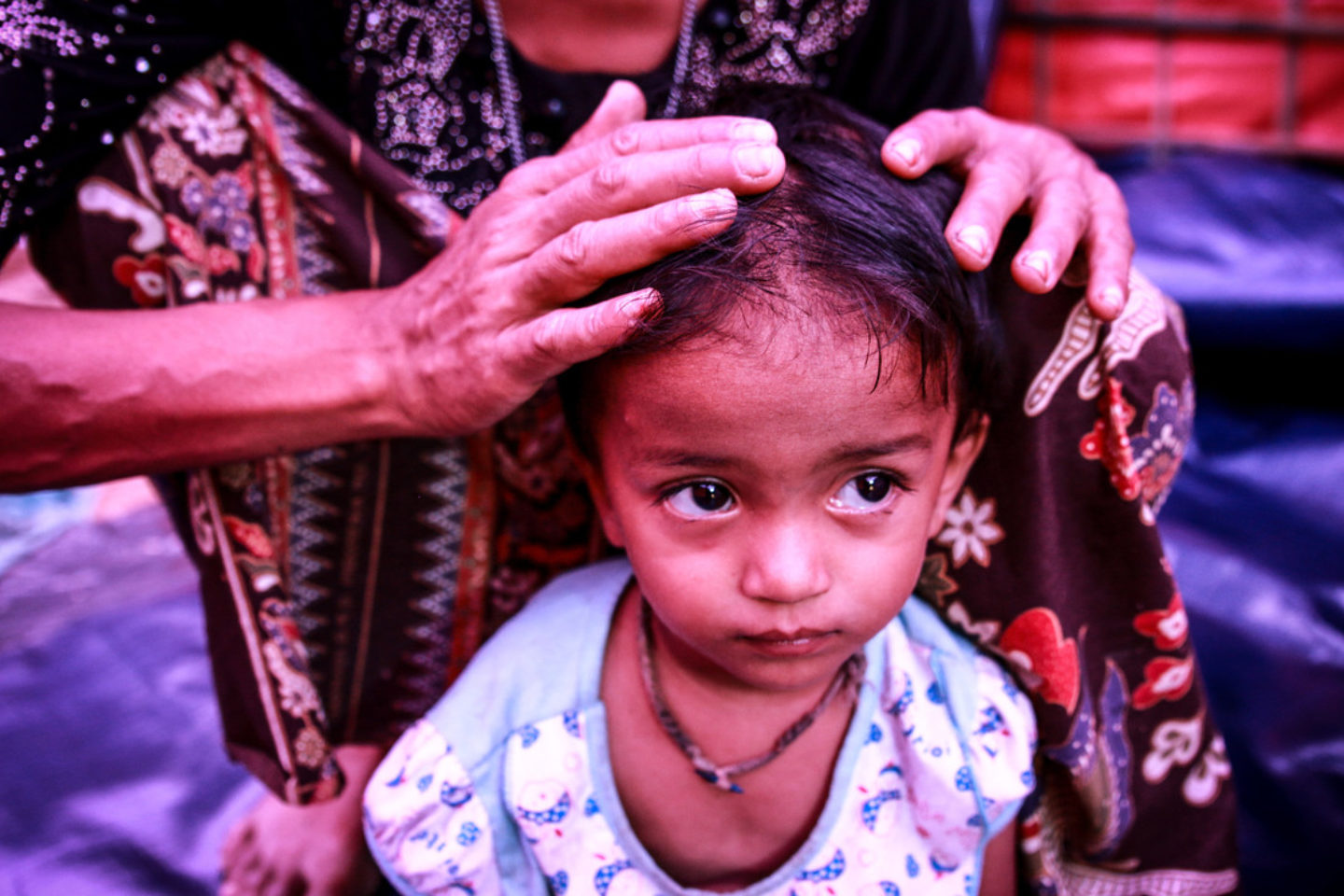Stories from Bangladesh
A Rohingya refugee story: ‘One thing less to worry about…’
They arrived ill and exhausted, incredibly aggrieved, but not being able to fully mourn their severe loss, having walked for days through jungle, rice paddies and mountains, and having braved the dangerous river voyage in a dilapidated boat. They survived the journey, but not all of them. Their two primary school aged children died a horrible death while their parents were not there to hold their hands. This is the refugee story of Zuwail (32) and Unia (30).
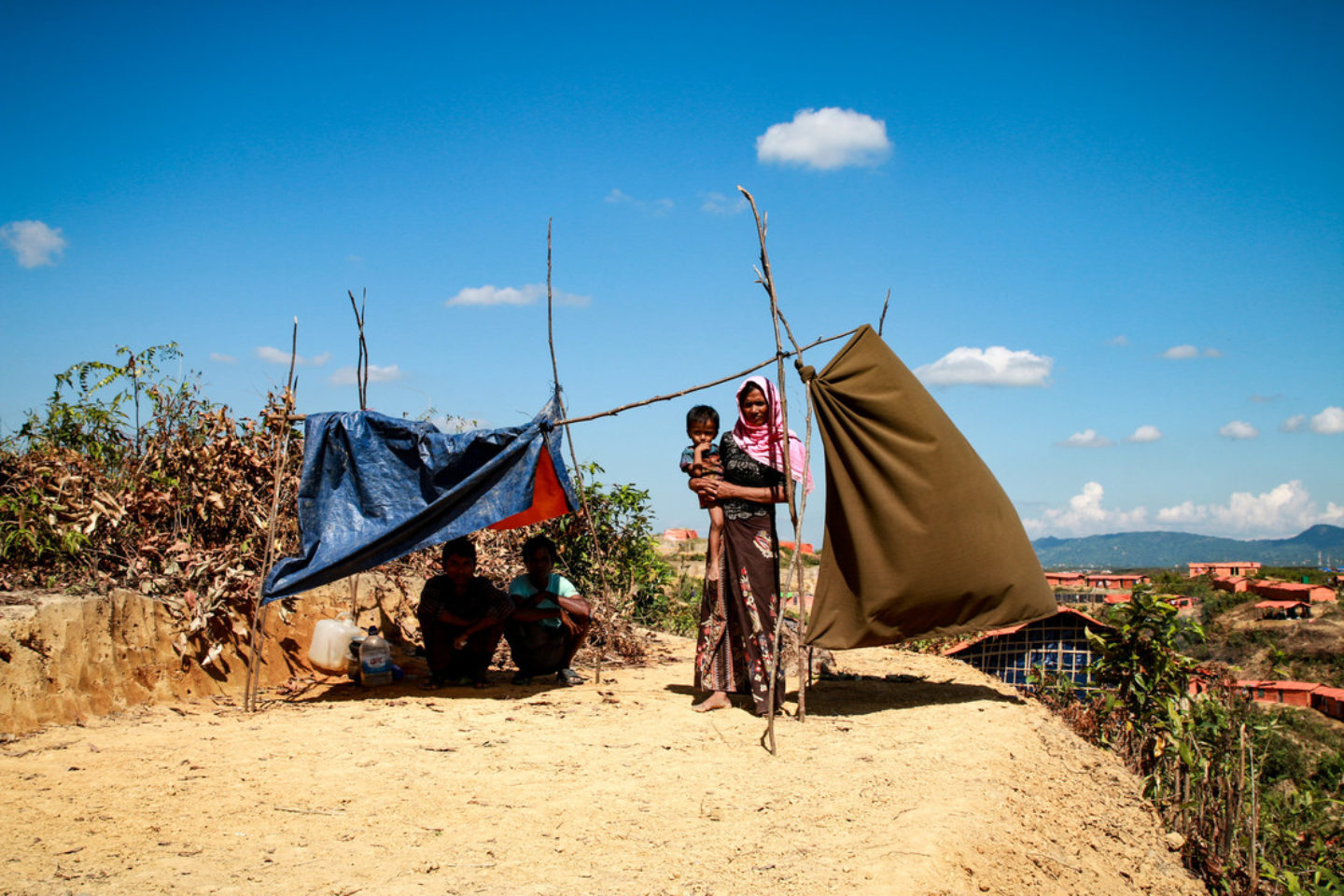
Since 25 August, the day insurgents attacked army and police posts in the remote western state of Rakhine in Myanmar, resulting in widespread violence, and mass displacement of civilians, more than 645,000 refugees have crossed from Myanmar into neighbouring Bangladesh. By the time you read this, that already astounding figure will have increased, as still weekly it goes up by thousands. When I met some of them, I heard their stories which include descriptions of murder, rape, burned houses, tears and terrible journeys. I met courageous widows, elderly, children and disabled.
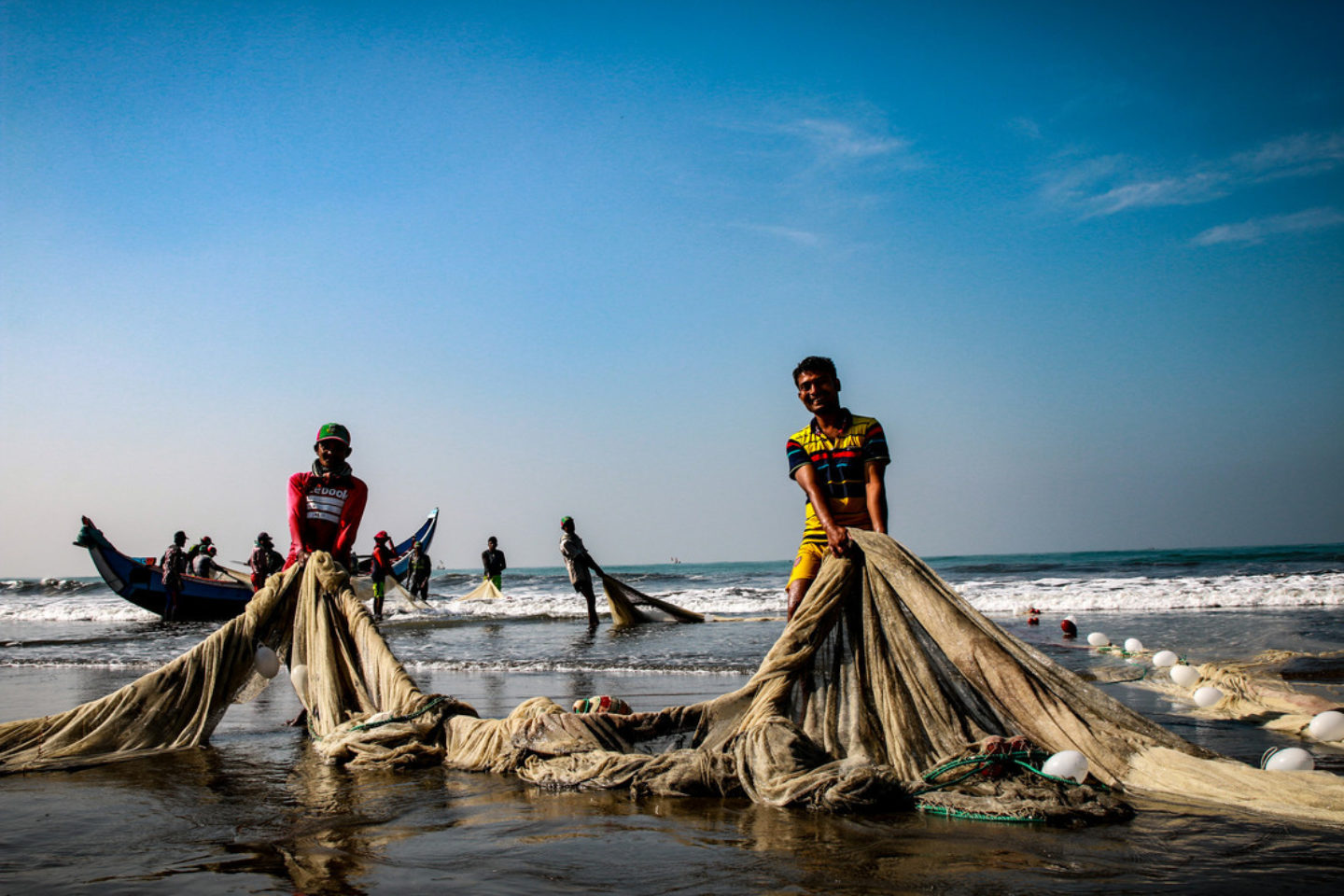
I drove for about two hours from Medair’s base in Cox’s Bazar to get to the entrance of the Thaingkhali camp. We drove down ‘Ocean road’ as we called it, where you see fishermen work and tourists enjoying the beach, where my eyes can be fixed endlessly on the motions of the waves in the ocean. But when we steer away from the ocean and get closer to the camp, the landscape changed. And when we arrive, it’s just mile upon mile upon mile of makeshift shelters, children walking bare feet, small markets set up and people sitting on the side of the road. The magnitude is indescribable.
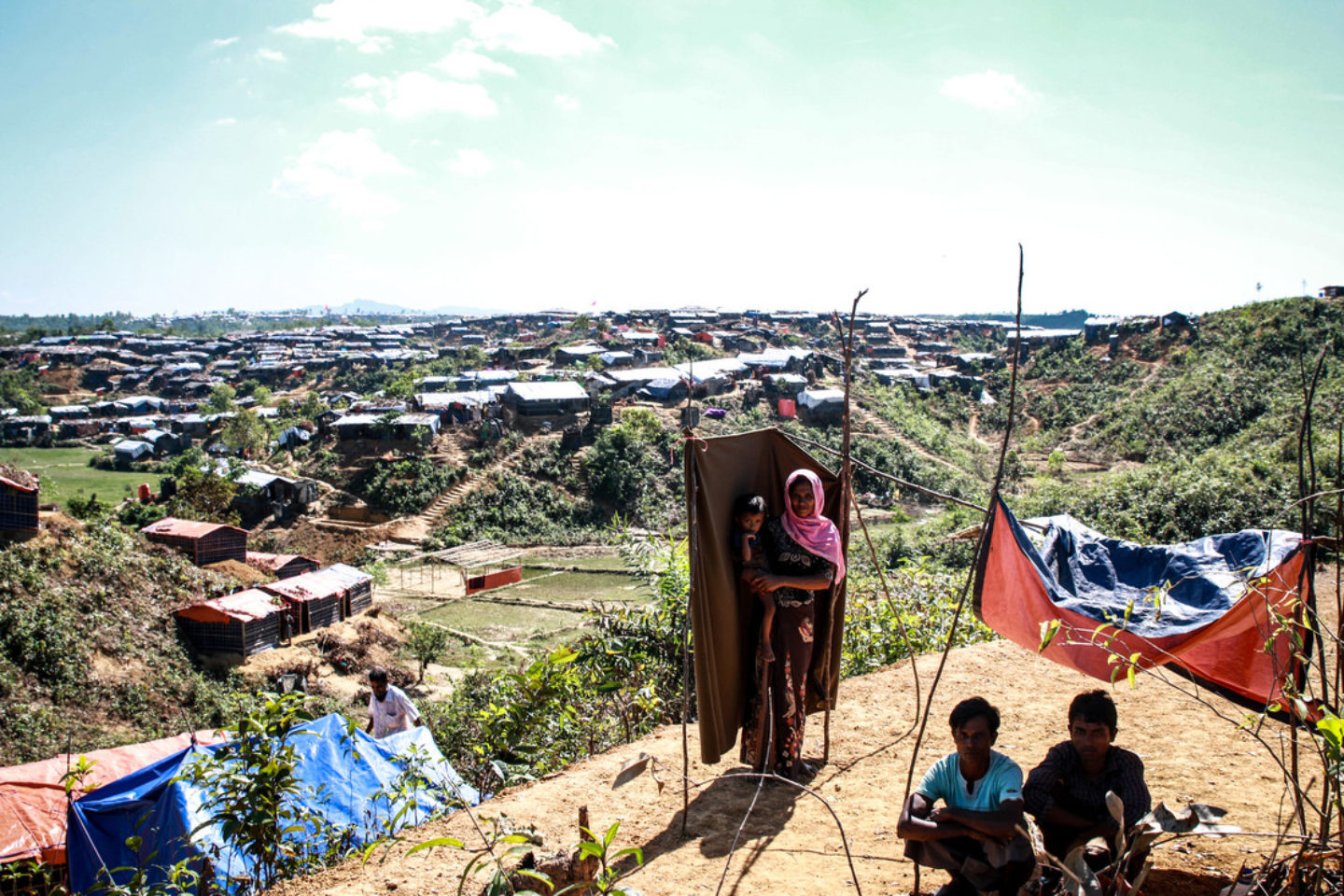
Zuwail and Unia are one of the grieving families I met. When I arrived at their ‘place’ after a tough hiking journey under the scorching sun, walking steep paths, all I could be is shocked. I had to catch my breath and just look out over the endless makeshift shelters below theirs, to wipe away some tears quietly and without getting noticed. The young couple and two remaining kids sleep out in the open, until they can build their shelter, which will mostly consist of bamboo poles and tarpaulin. They have no protection from the elements. They have one blanket and a small tarpaulin sheet. Two pots, a jerry can and the clothes they are wearing. That is literally everything there is.
Before the crisis they led a simple life. They survived off the help of their neighbours and didn’t have their own house either, but they did have clothes and food and a job to pay for that. They want to return to Myanmar.
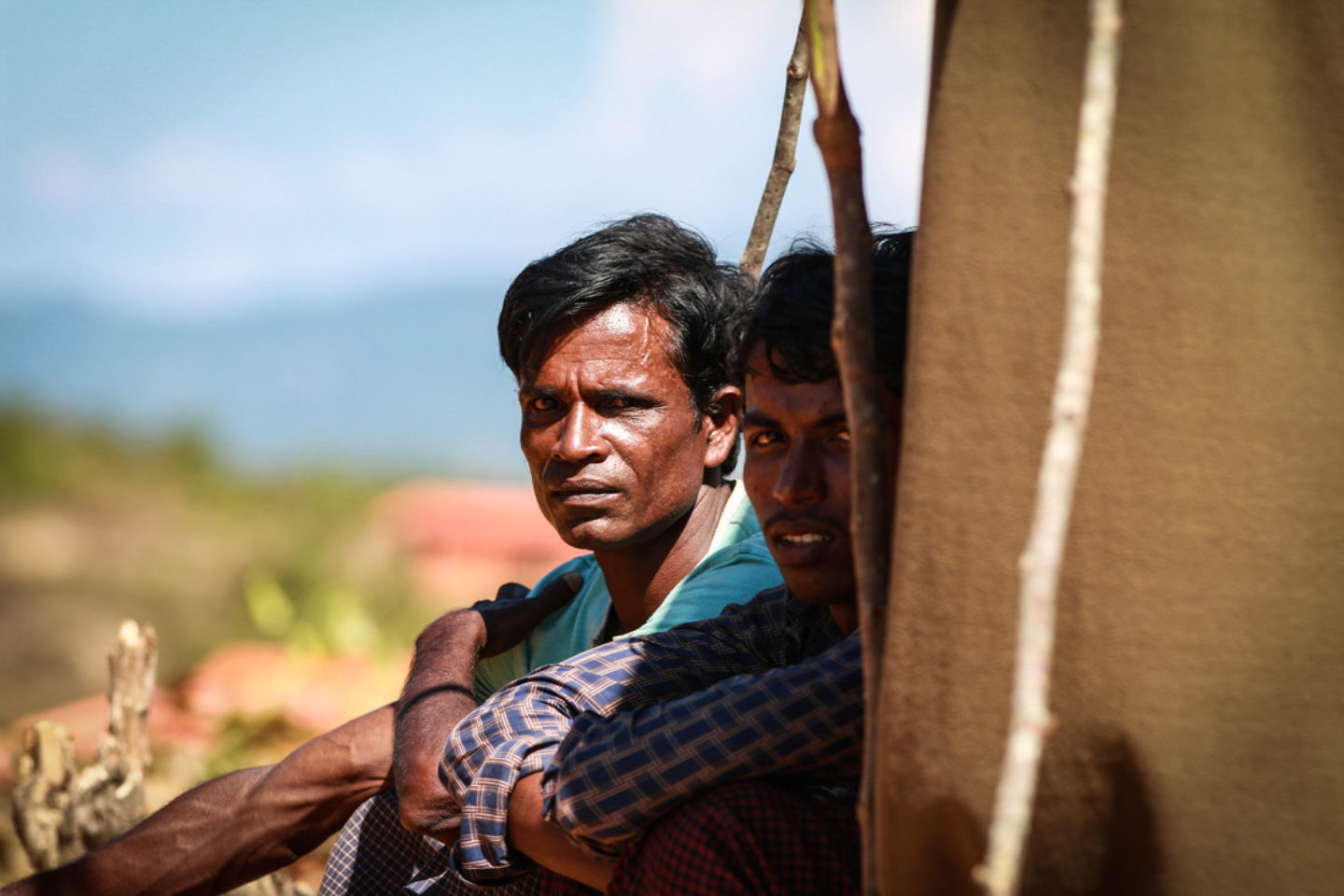
But then, one morning, their village got attacked. Men fired guns and torched their houses. Zuwail: ‘Everyone was running in different directions and we lost two of our children out of sight, we were so scared. Everyone was trying to save their own lives so we could not stop to help each other. But there were so many running. I just wanted to save our lives, I just wanted to cross the border… and now they told us my children were killed. We will never see them again. I cried a lot and could not go back’.
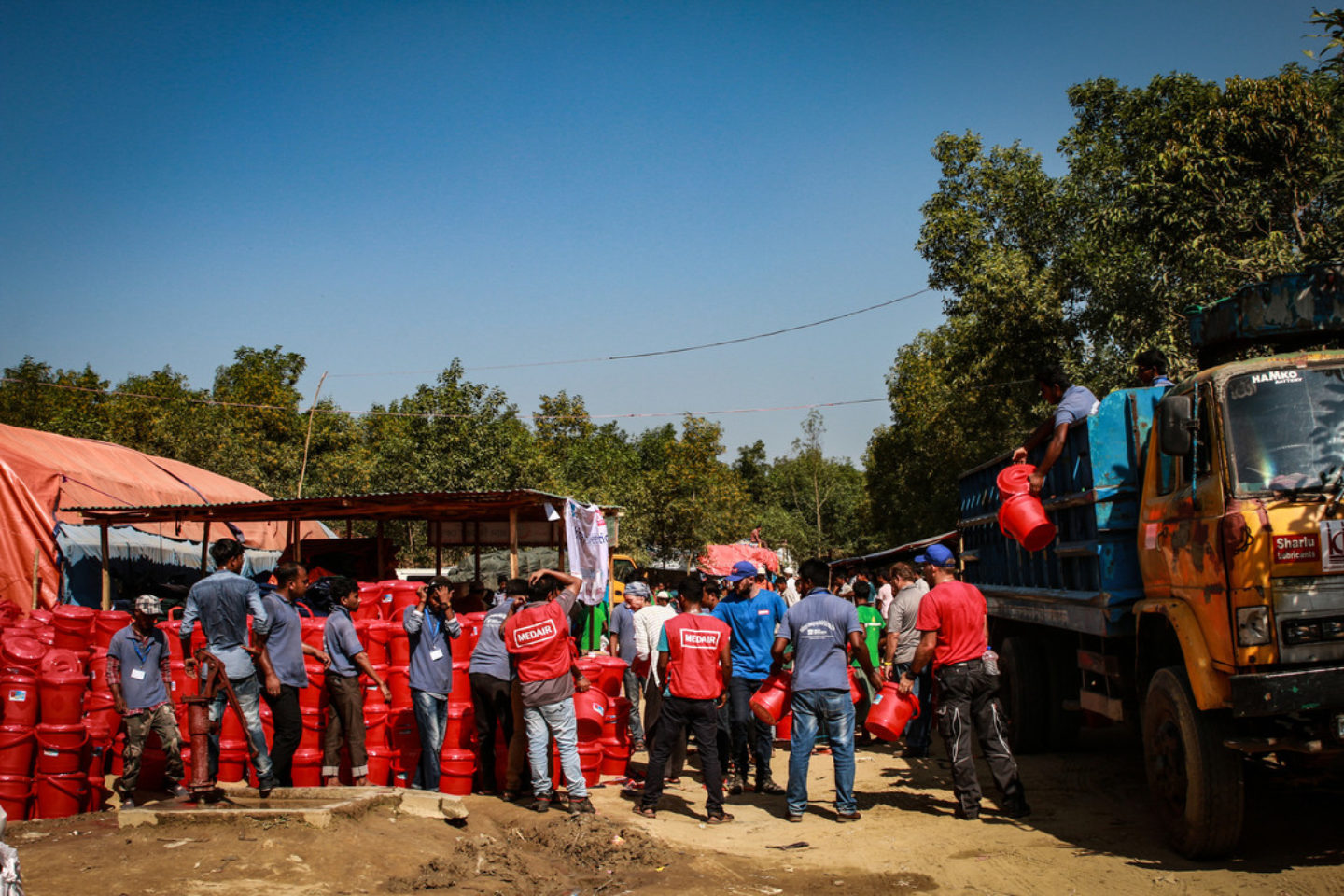
It is within this context that we began our work to provide shelter and hygiene kits to about 22,500 Rohingya refugees. While working alongside this historically oppressed minority group, the concept of finding the most vulnerable for the targeted distribution was not an easy task. Everyone needs help in one way or the other, just like Zuwail and Unia, they all have a story of loss and they almost all fled to the overcrowded camps with literally only the clothes on their body.
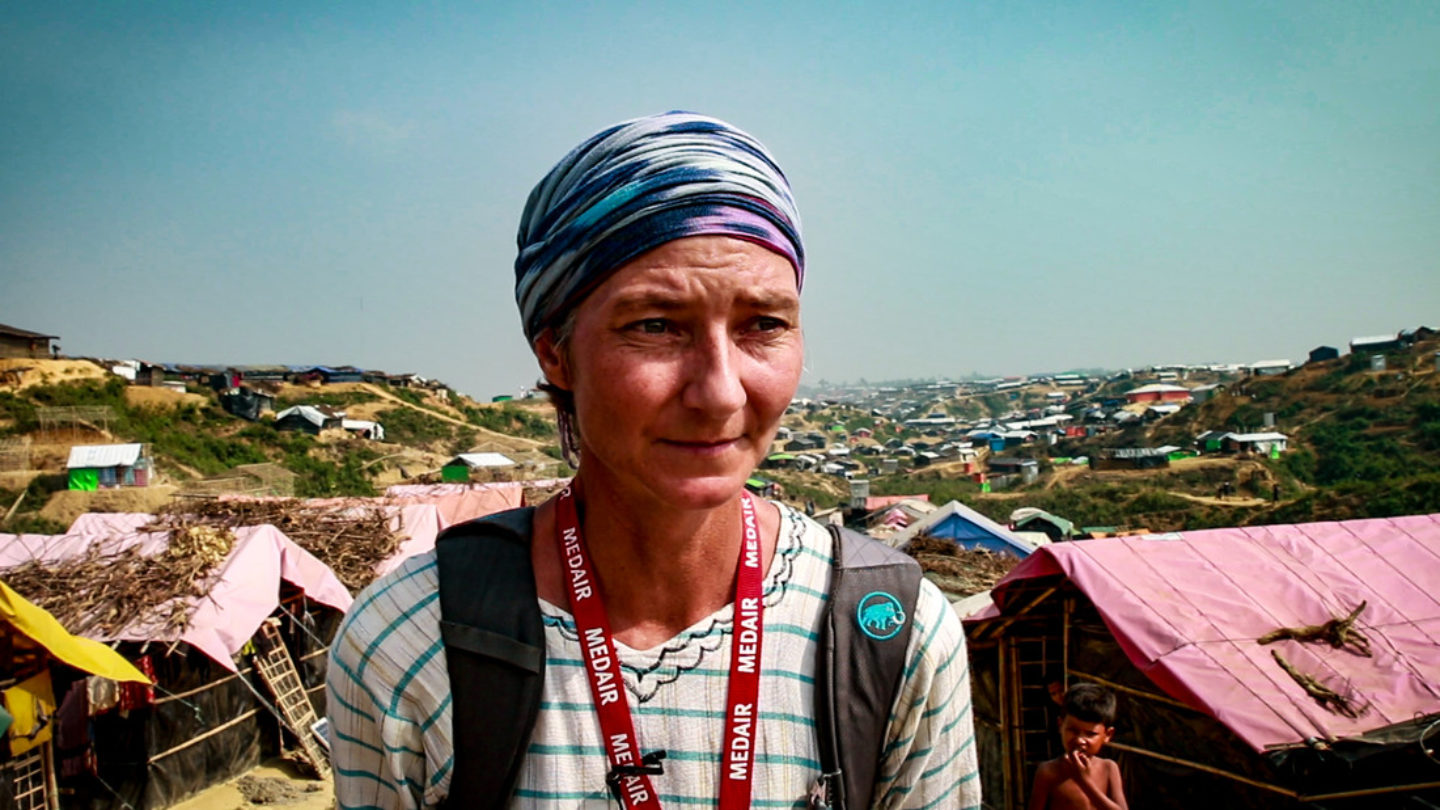
When I talk to our project manager Gaby, she says: ‘We often forget that every family is actually grieving, that they went through so many traumas. When we just arrived, everybody was talking about what happened, now they talk about the practical things, their needs. The trauma is still so close, but it seems like they have to move on. That is one of the reasons I’m here, we like the Medair values and Medair goes to the underserved and overlooked people, to the remote areas. To show people that someone still thinks of them and wants to help them.’
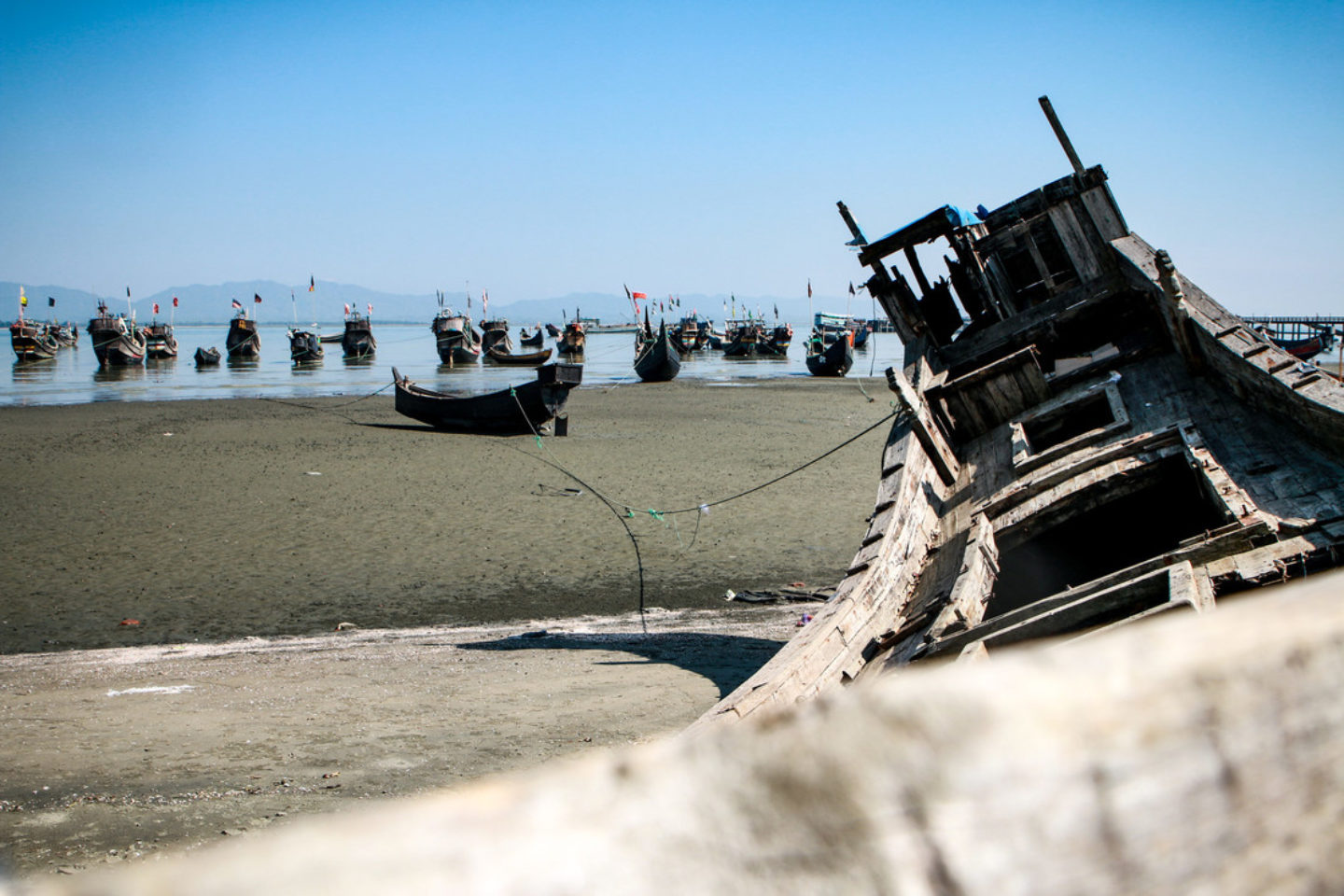
Zuwail continues his harrowing account: ‘It took us four days to walk to the riverside, we had to stop several times, it was a tough journey, we did hardly have any food to eat; a little rice and we had to drink water from the ponds. At the border, a man offered us to use his boat. Even when we did not have any money, he wanted to take us as he saw we were very needy and poor. Even though we could only bring some clothes on our journey, we had to leave everything behind and could not bring anything. The boat was full of people. People without their belongings. We were scared as we couldn’t swim. We were lucky because a boat not far from us sunk. I think everyone in that boat died; I saw them drown.’
I cannot imagine what is going through their minds.
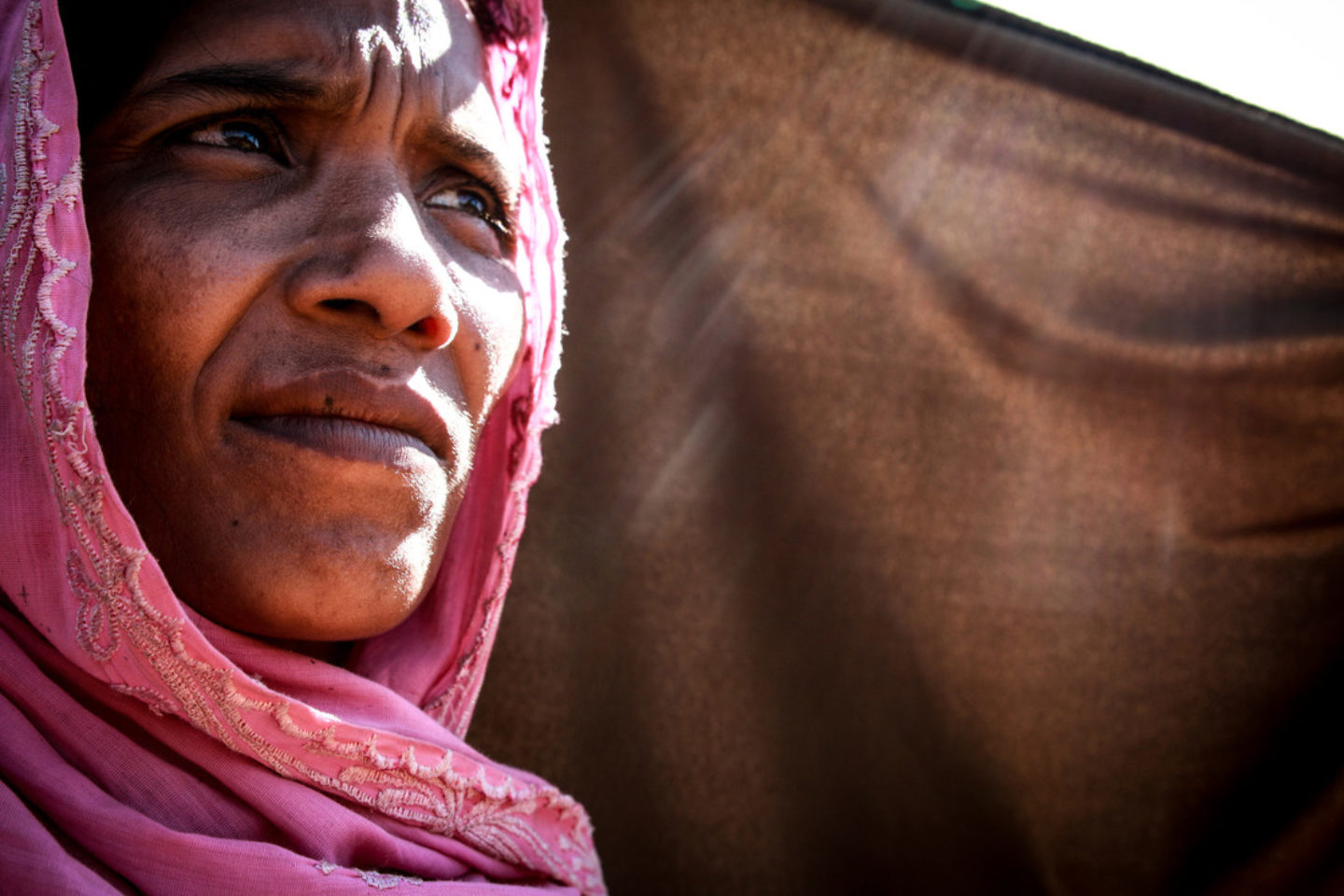
Unia, his wife, adds: ‘I feel so bad, I feel un-peace in my heart. I could not save my children. Now one of them is sick, he has a fever, and is coughing. I am grateful because our neighbours are sharing their food with us and the world is helping, we can see that. We really need shelter now. And some buckets to get clean water. Thank you for choosing us to get a voucher. We know we will get tarpaulin now. We will go on Monday to get it.’
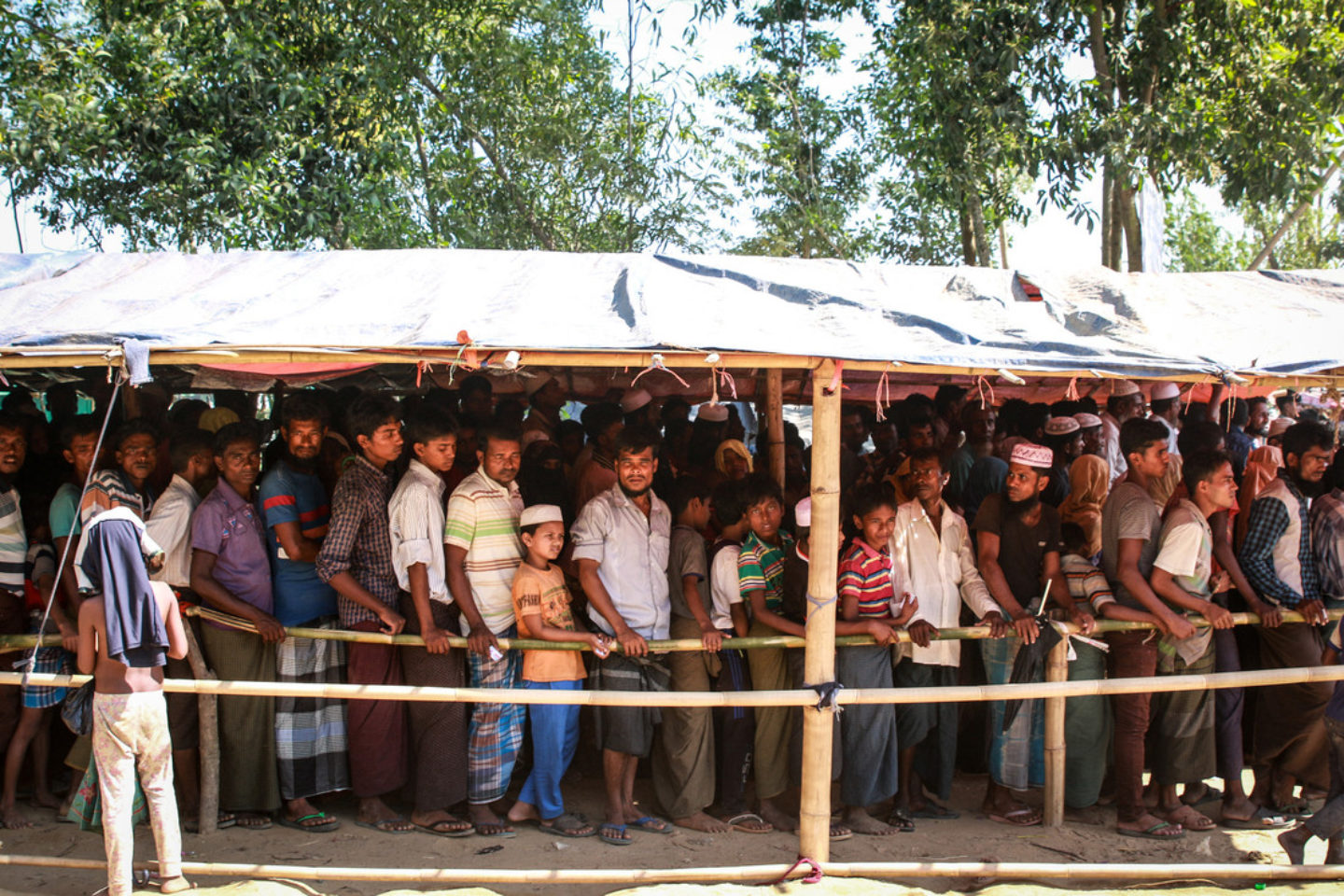
Two days later I met their teenager son at the distribution site when he is standing in line to wait for the items. With sunken eyes he told me about his brothers: ‘I used to play with my brothers, we played football in Myanmar and hung out. We were very happy together.’ Now he will never play football with them again. He’s holding his voucher in one hand, looking along the line he’s in.
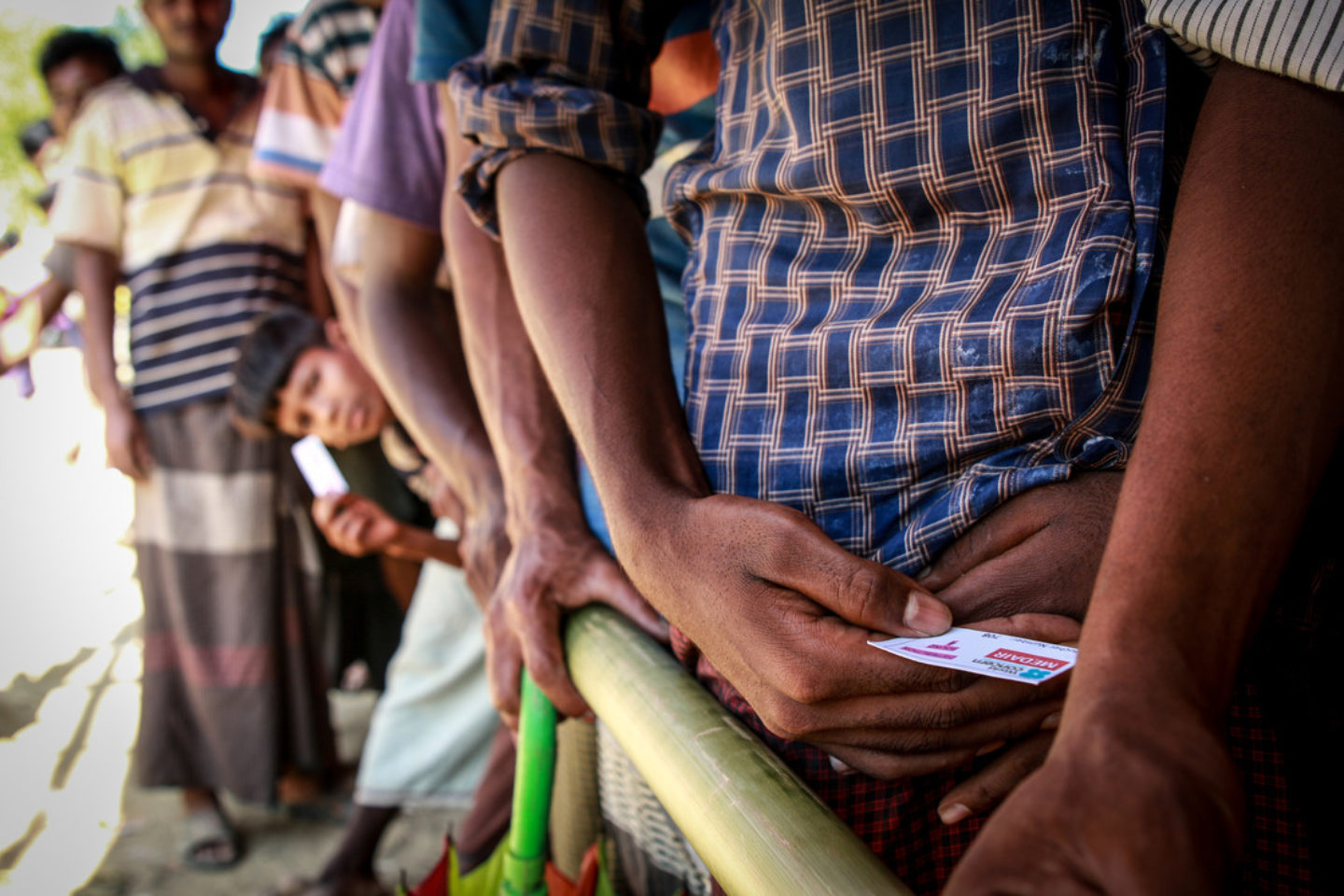
To me these distribution items of a shelter and hygiene kit seem so little, compared to what they have gone through, but I also know it will mean a lot to them. When he was finally able to get his voucher stamped and a fingerprint, he collected his goods. I didn’t see the incredibly sad look in his face change, and it reminds me of the terrible loss he just went through and that he will not be able to use these items together with his brothers. When I speak to him he says: ‘‘I’m hurt. I cried a lot.’ Tears welling up in his eyes again: ‘I want to read in school, but I don’t even know if there is a school. If there is no school, I would like to have a shop here, a business so that I can sell things and have some money. We don’t have money. We have nothing. I’m not even sure how we will put up the tarpaulin that we will get as we don’t have money for bamboo. But I am thankful that we received it. Thank you. We will find a way. You can come tomorrow to see as I’m sure we will have used it.’
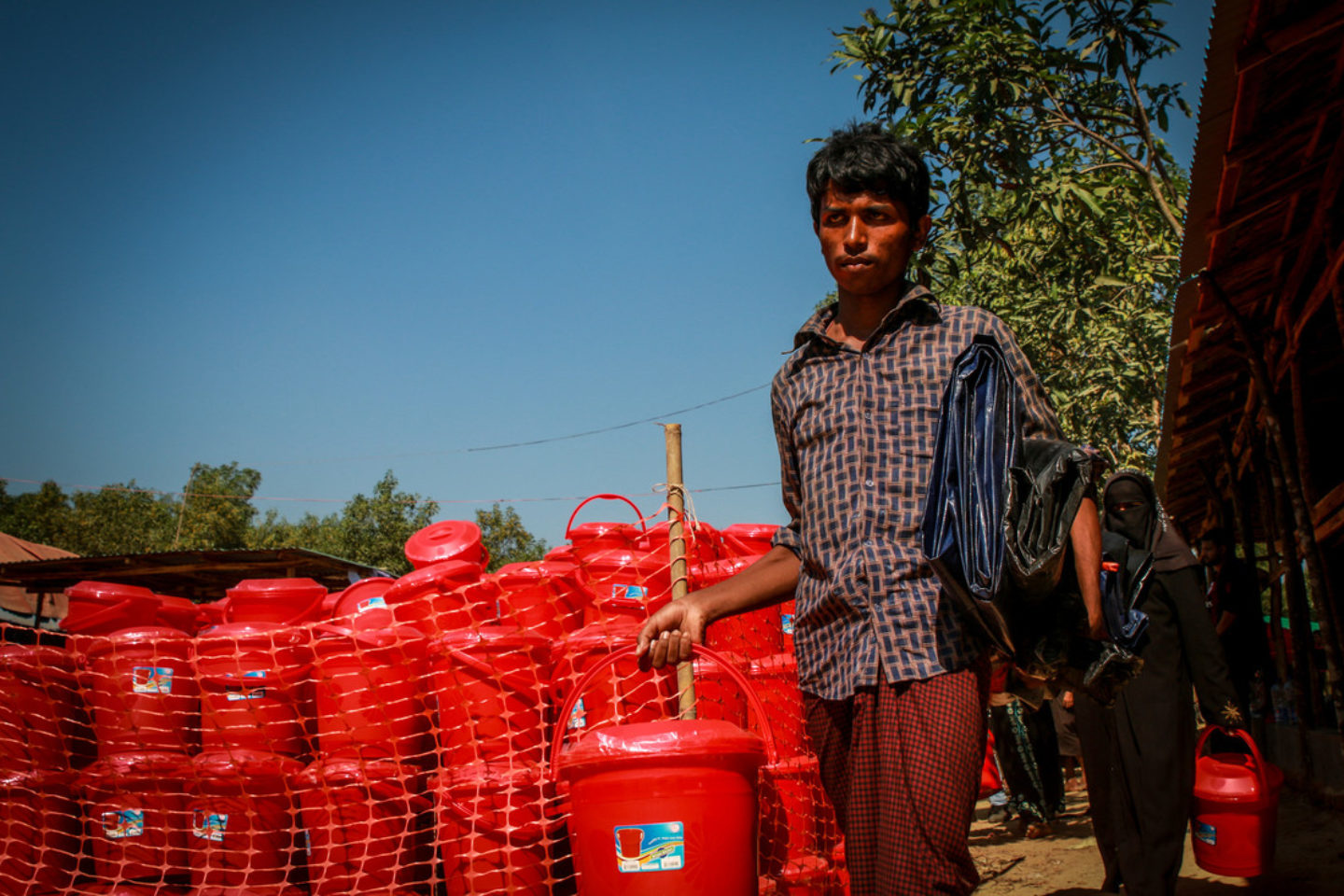
There’s a vast bamboo-business in the camps – I saw the bamboo coming in on trucks almost daily, and this is what people use to build their homes. But only if you have money. And Kafai and his family don’t have the money. They hardly have anything, they used their only jerry-can and their pot and pan as a pillow at night. They had to leave everything behind.
In the three weeks that I worked in the Rohingya refugee camps with Medair, I heard stories like this over and over again.
Another two days later, I want to check up on them, to see if they were able to use their received materials, so I return back to the place where they slept out in the open. The place is empty, not even the blanket and small tarpaulin there. Their neighbours tell me they have moved. My heart jumps with a little excitement – that must mean that they have another place now. I hope a better place. I follow the instructions of where they think they are and there I find them, in an actual bamboo-and-tarpaulin built shelter. Another organisation also saw their incredible need and gave it to them. Now with the distributed items by Medair I can’t believe the difference I see.
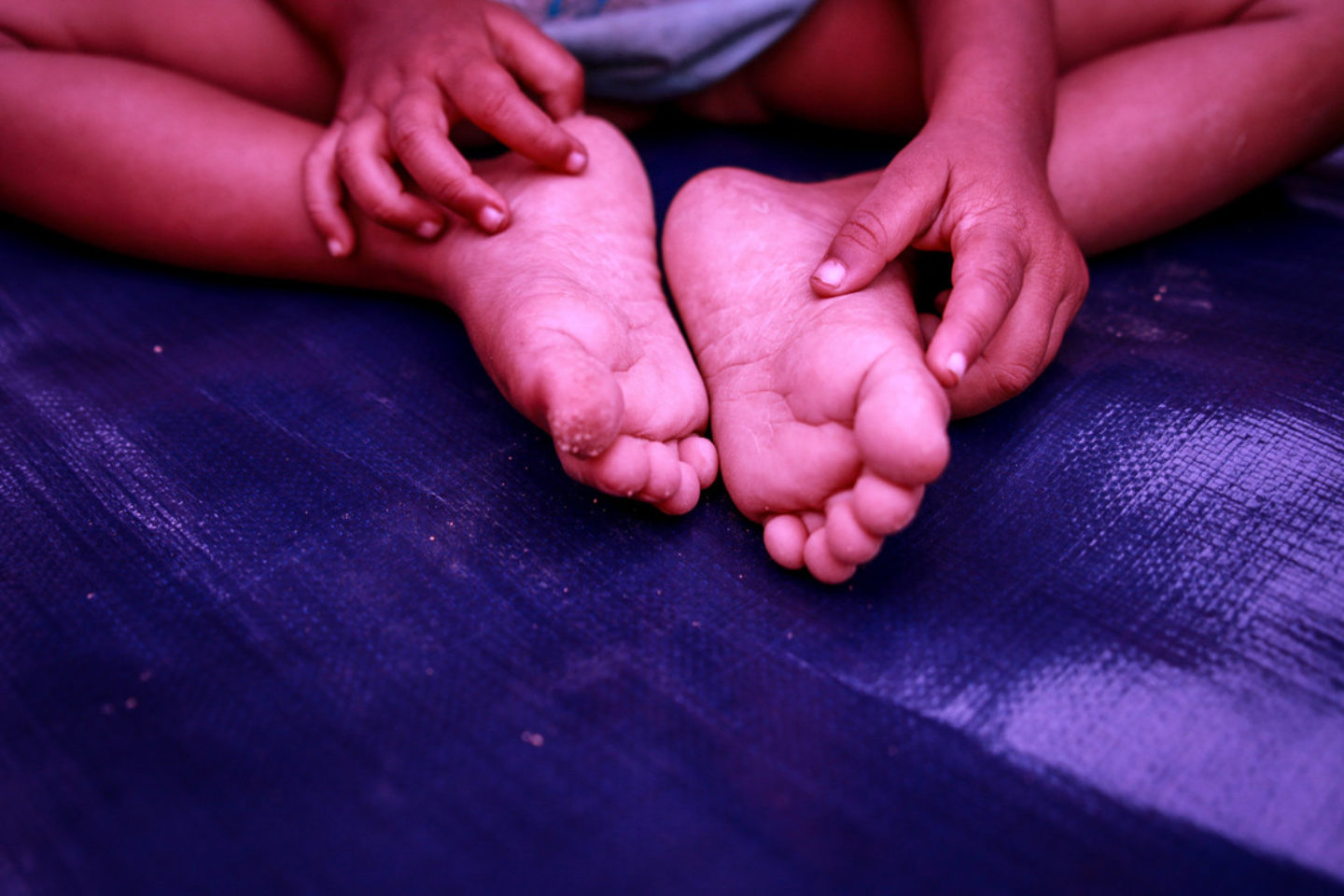
The malnourished 20 months old child is sitting on a clean, sturdy tarpaulin, his mother caresses him through his hair. While in our first meeting their answers were numb, empty and full of fear, now I see a slight change. A tiny glimpse of hope, a ray of life in their eyes, of wanting to survive again, to make the most out of it for their children. That their resilience and incredible courage is what holds their family together. And I’m intensely grateful that we could contribute a tiny little part to that.
